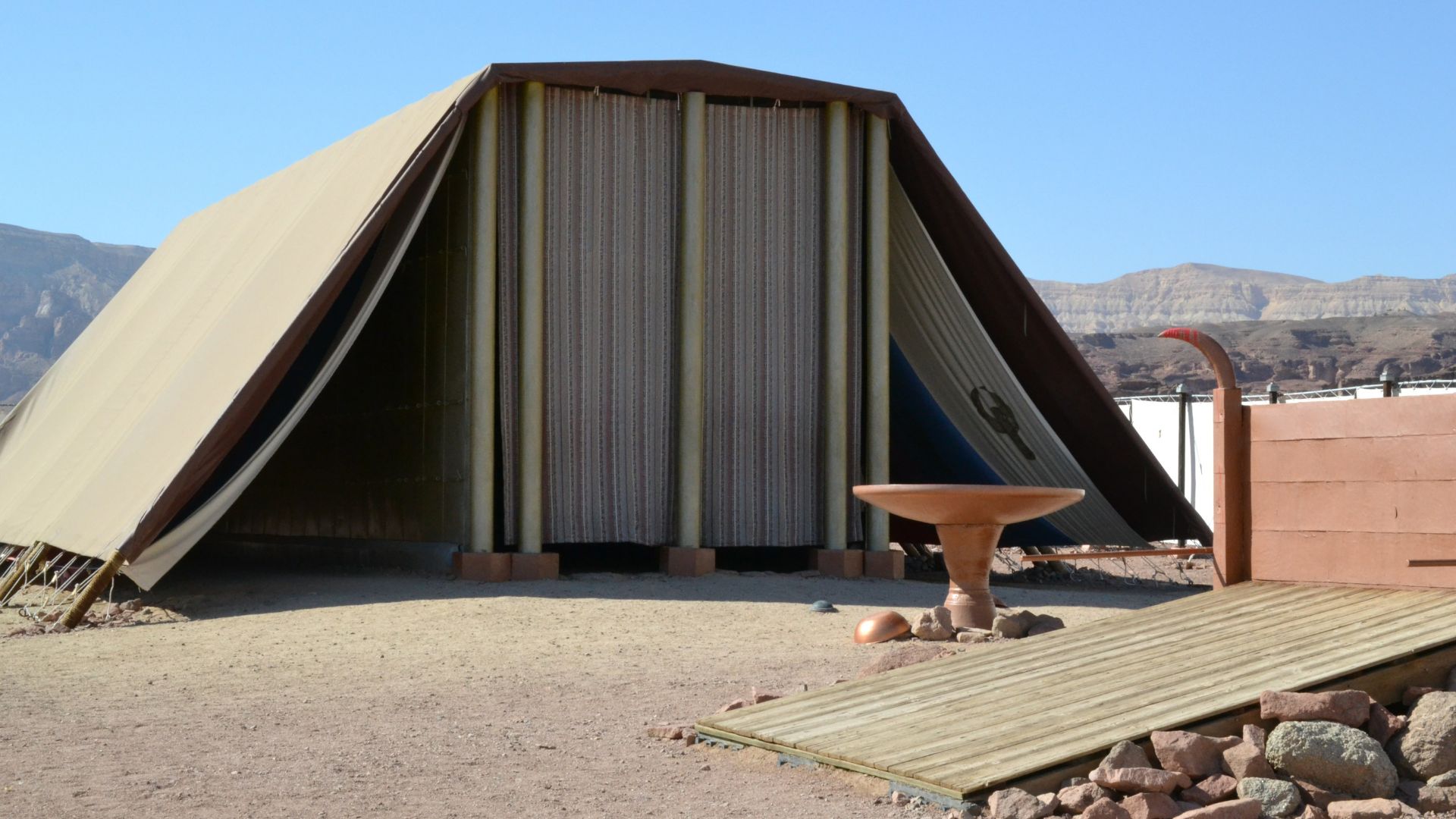One of the most important stories in the Bible is the “Exodus”–the story of how God rescued His people from slavery in Egypt and brought them into a new, promised land.
The Exodus is a pattern that represents how Jesus rescued us from the slavery of sin and gave us a new life of freedom.
After God used Moses to lead the people out of Egypt, through the Red Sea, and away from Pharaoh’s armies, He met with Moses on Mount Sinai. It was here that Moses received the Ten Commandments. But many fail to realize that God also gave Moses instructions to build the tabernacle–the resting place for the presence of God.
The details and pattern of the tabernacle are a symbol of Jesus’s death on the cross, His atoning blood that was shed for the world, and His role as the only mediator between God and man. The tabernacle pointed to the day when God would send His Holy Spirit to live no just in the holy of holies, but in the heart of every man, woman, and child who receives Him. That day has come!
Sometimes, if God seems far off, if you don’t feel like your prayers are being heard, or if you don’t know where to go when you’re stuck in the “wilderness,” it is difficult to know how to pray. That’s why the tabernacle is so important! It gives us a pattern, a way to approach God with confidence.
In this blog, we will walk through the patterns of the tabernacle, and at each step along the way, we believe God is going to speak to you and show you how the tabernacle point you to a life filled with God’s presence!
THE BRAZEN ALTAR
When entering the tabernacle’s outer court, the first thing you would have seen was the brazen altar. Early altars in Israel’s history were made out of rocks, stone, or mounds of dirt, but the brazen altar of the tabernacle was built of brass-covered wood.
Before they could go any closer into God’s presence, the priests had to offer a sacrifice both for their own sin and the sin of the people. The beginning of their relationship with God started with recognizing their own humanity and wrongdoing before a holy God who loved them perfectly.
The brazen altar points all of humanity to the perfect sacrifice that ended the practice–when Jesus, our High Priest, offered Himself. Hebrews 7:26-27 says, “For such a High Priest was fitting for us, who is holy, harmless, undefiled, separate from sinners, and has become higher than the heavens; who does not need daily, as those high priests, to offer up sacrifices, first for His own sins and then for the people’s, for this He did once for all when He offered up Himself.”
Prayer Plan: Thanks to Jesus’s perfect sacrifice for sin, no longer is there the need for the shedding of blood. Instead, God asks us to become living sacrifices, to begin our days humbling ourselves before God and asking for His help to do His will, and not our own. The apostle Paul said, “I die daily” (1 Corinthians 15:31). He took up his cross every day, and in doing so, he found freedom from the slavery of his former life.
THE BRAZEN LAVER
Blood sacrifices are, by their nature, shocking. Imagine the area surrounding the brazen altar where the animals were slaughtered. Blood would be pooled everywhere, splattered on clothing, and filling the air with its heavy metallic smell. Who could enter the presence of a holy God in such a condition? So, after the brazen altar, there was a brazen laver–a ceremonial washing bowl made of brass. Here, the priest washed clean the blood spilled on him from the sacrifice.
In the same way, even though our sacrifice has been made, we still need cleansing because we’re imperfect. Our lives get messy, and we need to wash off anything that’s unclean as we serve a holy God. The brazen laver was God’s way of making the priests pause and purify themselves before entering His presence. Sacrifice and humility before God are important, but what He longs for is a pure heart. A heart prepared to listen and obey.
David, a man after God’s own heart, pleaded for God to create in him a clean heart:
Wash me thoroughly from my iniquity,
And cleanse me from my sin.
Purge me with hyssop, and I shall be clean;
Wash me, and I shall be whiter than snow.
Create in me a clean heart, O God,
And renew a steadfast spirit within me. (Psalm 51:2, 7, 10)
Prayer Plan: No one can read these verses and not be touched by his sincerity. When we pray with a pure, cleansed heart–washed in the blood of the lamb–and come before our Father, our prayers are powerful!
——
Next Week: The Tabernacle Prayer Plan: Part 2
For more on this topic, click here.


